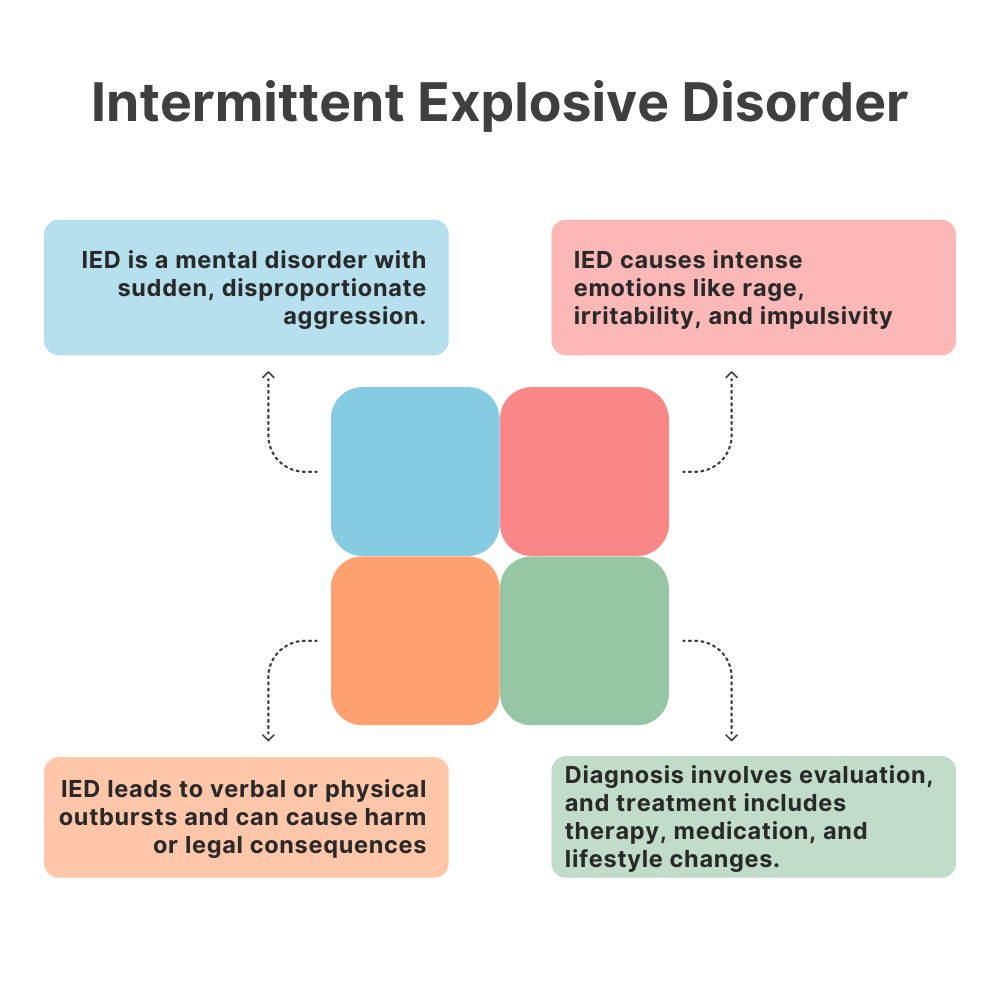What is Intermittent Explosive Disorder?

This is characterized by episodes of anger and sudden outbursts in which the person loses control entirely. It involves a series of verbal outbursts, physical fights, and sudden anger that causes distress and affects everyday activities and relationships. It usually begins in childhood or adolescence; however, most people continue to experience it later in their life.
It is a chronic disorder that usually decreases with age.
Signs & Symptoms
An intermittent explosive disorder episode can happen at any time. Some people have episodes daily, while others stay nonaggressive for weeks and months. A typical incident last for less than 30 minutes.
Common symptoms are:
- Verbal aggression (e.g., temper tantrums, tirades, verbal arguments or fights)
- The recurrent aggressive outbursts are not premeditated (i.e., they are impulsive and/ or anger-based) and are not committed to achieve some tangible objective (e.g., money, power, intimidation).
- Chronological age is at least 6 years (or equivalent developmental level).
- Frustration
- Sudden rage
- Irritability with human contact
- Scattered thoughts
A child may have impulsive behavior outbursts very frequently; or two or more outbursts per week for three months. Outbursts include temper tantrums, verbal or physical fights, the harming of an animal, or the damaging of property. The magnitude of aggressiveness expressed during the recurrent outbursts is grossly out of proportion to the provocation or to any precipitating psychosocial stressors.
Having three or more outbursts within a one-year period resulting in the damage or destruction of property or injury to an animal or person is also a sign of this disorder.
References
- National Institutes of Health: “Intermittent Explosive Disorder Affects up to 16 Million Americans.”
- Children’s hospital of Philadelphia: https://chop.edu/conditions-diseases/disruptive-behavior-disorders-children
- NHS: “Cognitive Behavioral Therapy (CBT).”
